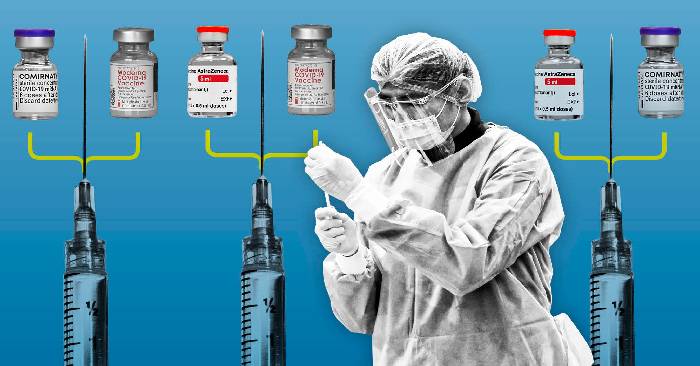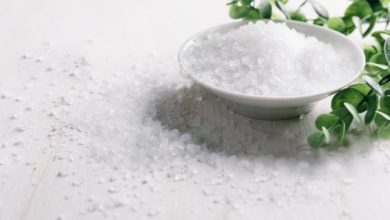Is it safe to mix and match Covishield and Covaxin? A new study provides a significant update

New Delhi: A hospital in Hyderabad has conducted a pilot study to determine the safety profile of combining two COVID-19 vaccines, Covishield and Covaxin.
The study, conducted by AIG Hospitals in collaboration with researchers from the Asian Healthcare Foundation, found that combining Covishield and Covaxin is ‘absolutely safe, with no adverse effects’ on any of the participants.
For the study, 330 healthy volunteers who had not been vaccinated and had no history of COVID-19 infection were chosen and screened for SARS-CoV-2 antibodies. 44 (13%) of these participants were found to be seronegative, meaning they lacked COVID-related antibodies.
“One of the study’s unintentional findings is the prevalence of seropositivity in our population.” COVID-related antibodies were found in 87 percent of participants who were not vaccinated and never tested positive for COVID-19. This means that our population may have developed significant antibodies against the COVID-19 as a result of the massive Delta wave that we experienced,” said Dr. D Nageshwar Reddy, Chairman of AIG Hospitals.
India, like many other countries, is currently experiencing the third wave trend, which is being fueled by the Omicron variant. Although preliminary data suggest that this wave will be milder than the Delta one, with fewer hospitalizations, the researchers believe that a large portion of the population will be affected.
Because the Union Government has approved “Prevention” vaccine doses for healthcare workers, the elderly, and the vulnerable population, it is critical to determine the level of cross-immunity caused by the mixing of available vaccines. According to the researchers, it is also critical that the safety profiles are well-established before administering different vaccines as prevention or booster doses.
44 participants were divided into two four groups.
Group 1: First Dose of Covishield + Second Dose of Covishield
Group 2: First Dose of Covaxin + Second Dose of Covaxin
Group 1 and 2 were the homologous vaccine groups in which same vaccine have been given and relevant antibody titers were checked.
Group 3: First Dose of Covishield + Second Dose of Covaxin
Group 4: First Dose of Covaxin + Second Dose of Covishield
Group 3 and 4 were the heterogeneous vaccine groups in which different vaccines were given and antibody titers were checked. All these 44 participants were followed for 60 days to see if there’re any adverse effects.
The study concluded that mixing vaccines is completely safe, as none of the participants experienced any adverse effects. The most important finding of the study was that Spike-protein neutralising antibodies were significantly higher in the mixed vaccine groups than in the same-vaccine groups.
“Spike-protein neutralizing antibodies kill the virus and reduce its overall infectivity.” “We discovered that when the first and second doses of a vaccine are different, the Spike-protein antibody response is four times higher than when two doses of the same vaccine are used,” Dr. Reddy said.
“This is especially important when it comes to the third booster dose.” The idea behind a booster is to elicit a strong antibody response that will aid in the elimination of the virus. “Mixed doses can certainly boost these Spikeprotein neutralising antibodies and improve vaccine efficacy even against the Omicron variant,” he added.
The study results show that combining Covishield and Covaxin provides a higher antibody response while remaining safe.
The data from the study was shared with the Indian Council for Medical Research (ICMR) to be used as a reference study when deciding on the “Prevention” doses beginning January 10.






